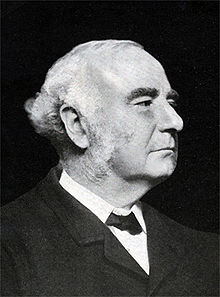Alfred Newton
| Alfred Newton | |
|---|---|
 |
|
| Born |
11 June 1829 Geneva |
| Died | 7 June 1907 (aged 77) Cambridge |
| Notable awards |
Royal Medal (1900) Linnean Medal (1900) |
Alfred Newton FRS (11 June 1829 – 7 June 1907) was an English zoologist and ornithologist. Newton was Professor of Comparative Anatomy at Cambridge University from 1866 to 1907. Among his numerous publications were a four-volume Dictionary of Birds (1893–6), entries on ornithology in the Encyclopaedia Britannica (9th edition) while also an editor of the journal Ibis from 1865 to 1870. In 1900 he was awarded the Royal Medal of the Royal Society and the Gold Medal of the Linnaean Society.
Alfred Newton was the fifth son of William Newton of Elveden Hall in Suffolk, sometime MP for Ipswich and a Justice of the Peace for the County of Norfolk. Alfred's mother Elizabeth (1789–1843) was the daughter of Richard Slater Milnes of Fryston (sometime MP for York). The family wealth was founded on sugar plantations in the Caribbean, where Alfred's grandfather Samuel Newton had a sugarcane plantation in St Kitts, and a property in St Croix (both in the West Indies). With the abolition of slavery, the golden days of sugar were over, and William sold up and returned to England, purchasing the property of Elveden, near Thetford from the Earl of Albermarle. Elveden (pronounced and sometimes spelt 'Eldon' and often improperly spelled as "Elvedon") was a house and estate built in 1770 by Admiral Augustus Keppel (Lord Keppel) on land where James II had hunted game. After the comparatively humble Newtons left, Elveden Hall and the estate was bought by Prince Duleep Singh in 1863, the exiled Sikh ruler and last Maharajah of Lahore, and later by the Guinness family (Earl of Iveagh).
...
Wikipedia
